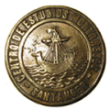The collection has just been presented The new age, published by the Center for Mountain Studies for three years.
The first volume, Entertainments of a highland nobleman, lover of his homeland (1787), by Francisco Javier Bustamante, was known for many years, but until now, although manuscript or typed copies have circulated, it had never been edited. This edition is enriched with an introductory study, as enjoyable as it is rigorous, by Miguel Ángel Sánchez Gómez, Professor of the Department of Modern and Contemporary History of the University of Cantabria and member of the Center for Mountain Studies. In it, the author analyzes the historical context in which the work arises, the biography and personality of Francisco Javier de Bustamante, the most notable facts that he includes in his work and the origin of a good amount of the material he contributes, pointing out the main mistakes they make and highlighting the importance of some of the news they offer.
The second title in the collection is Diary of a mountaineer prisoner in Napoleonic France (1812), The work is preceded by an interesting and documented introductory study by Rafael Palacio Ramos, historian of proven solvency and brilliant career, as well as director of the House of Culture of Santoña and member of the CEM. In it he analyzes the vicissitudes through which the manuscript has passed over time, the life and personality of its author, the historical context in which Pérez de Camino's newspaper was born and the particular characteristics of this edition, based on the transcripts of the original made by José Simón Cabarga and Emilio Matorras. It also includes a good collection of footnotes, which greatly facilitate the correct understanding of the text and contextualize its contents. The book is completed with six appendices that round off the knowledge of the author and what has been written about his work so far: 1º) Introduction of José Simón Cabarga to the transcription of the newspaper of Tomás Pérez de Camino. 2º, 3º y 4º) Official certifications in relation to said gentleman. 5º) Correspondence of the same with his children. 6º) Reissue of “From Santander to the Vosges (diary of a prisoner of state Napoleon)”, by José Simón Cabarga, published in Altamira 1953.
The third and final volume in the collection “Ex Vetvstate Novvm”, corresponding to the year 2020 and just out of print, is a semi-facsimile special edition of a collection of photographic albums dedicated to the built heritage and urban landscape of Cantabria made around the year 1920 by amateur photographer Fernando Cevallos de León with the generic title The Artistic and Monumental Mountain. The first two volumes, that the tradition preserved within the family attributes from the design to the binding to Fernando Cevallos himself, collect civil architecture, and the following the religious, gathering in total 374 Exceptionally produced images that impress with the framing and composition of the architectural elements, artistic and landscape containing, but also for the contents of everyday life: children, seniors, the clothes of the time in the sunbeams or the farm implements in the arches of the houses come to less, which the author sometimes contrasted with the presence of his brand new car, inviting to dream, from his supporting role on the scene, in a promising future that could redeem the languid rural Spain that was struggling in the sadness of the loss of the great empire.
This work has an interesting introduction signed by Virgilio Fernández Acebo and Francisco Gutiérrez Días and given the patrimonial content of the work and its careful editing quasi-facsimile, the publication has been co-edited by the Center for Mountain Studies, owner of the photographic funds and vocationally dedicated to historical studies and the arts as Official Cronista de Cantabria, and by the Federation of Acanto Associations, dedicated to the defense of cultural and natural heritage. The confluence and coordination of both entities has allowed today to have this exceptional work, resolved as a still photo of a region linked to emigration in imperial times. The author himself, although born in Madrid, he held such a family background.
[/fusion_builder_column][/fusion_builder_row][/fusion_builder_container]Views: 598


